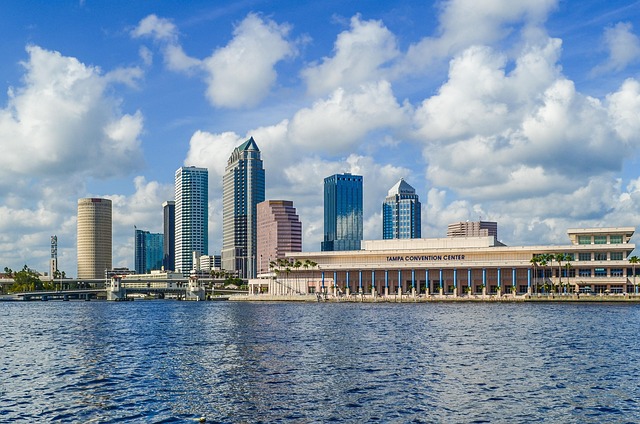Tampa, Florida, boasts a robust mental health network for child abuse survivors, featuring specialized services from Tampa Mental Health Centers. Through collaborative care, survivors receive holistic treatment, including therapy, counseling, support groups, and legal advocacy from child abuse law firms in Tampa, FL. This comprehensive approach prioritizes trauma-informed care, empowering survivors to heal and rebuild their lives.
Tampa Mental Health Centers offer crucial support to survivors of child abuse, navigating a labyrinthine landscape of recovery. This article explores the comprehensive network of services available in the Tampa Bay area. From understanding the local mental health system to accessing legal aid and trauma-informed care, we delve into how these centers empower survivors. We also highlight community resources that foster long-term healing for those affected by child abuse, emphasizing the vital role of a supportive ecosystem, including top-rated child abuse law firms in Tampa, FL.
Understanding Tampa's Mental Health Network

Tampa, Florida, boasts a robust mental health network dedicated to supporting individuals affected by various challenges, including trauma and abuse. This network is comprised of numerous centers and organizations working collaboratively to provide comprehensive care. At the heart of this system are Tampa Mental Health Centers, which play a pivotal role in assisting survivors of child abuse. These centers offer specialized services tailored to address the unique needs of each individual, ensuring they receive the necessary support for healing and recovery.
The collaboration among Tampa’s mental health institutions enables seamless care coordination. This means that when a survivor of child abuse seeks help from a child abuse law firm in Tampa FL or enters the mental health network, they can expect a consistent and integrated approach to their treatment. Whether through therapy, counseling, or support groups, survivors gain access to resources that foster resilience and empower them to rebuild their lives.
Supporting Survivors: Center Services & Programs

Tampa Mental Health Centers offer a range of specialized services and programs tailored to support individuals who have survived abuse, including child abuse. These centers provide safe spaces for survivors to begin their healing journey. Therapists at these facilities are trained in various therapeutic approaches, such as trauma-focused cognitive behavioral therapy (TF-CBT), to help clients process and overcome the emotional scars left by abusive experiences. Support groups and individual counseling sessions enable survivors to connect with peers who understand their struggles, fostering a sense of community and encouragement.
In addition to direct therapy, the centers often organize educational workshops and advocacy programs. These initiatives aim to empower abuse survivors by equipping them with knowledge about their legal rights, as well as tools to navigate the child abuse law system in Tampa, FL. By combining therapeutic interventions with practical resources, these mental health centers holistically address the needs of survivors, promoting long-term healing and personal growth.
Legal Aid for Child Abuse Victims in Tampa FL

In Tampa, Florida, victims of child abuse have access to legal aid and support through specialized services dedicated to protecting their rights. Many organizations, including reputable child abuse law firms in Tampa FL, offer pro bono assistance or low-cost legal representation to ensure that survivors can pursue justice and receive the help they need. These law firms understand the complexities of child abuse cases and are equipped to navigate the legal system effectively.
They provide a range of services, from filing protective orders and representing victims in court to offering counseling and advocacy. The legal team works closely with local Tampa Mental Health Centers to ensure that survivors receive holistic care, addressing both their mental health needs and legal rights. This collaborative approach is vital in helping child abuse survivors heal and rebuild their lives.
Trauma-Informed Care: A Holistic Approach

At Tampa Mental Health Centers, trauma-informed care is at the core of their approach to working with abuse survivors. This holistic method recognizes that traumatic experiences, such as child abuse, can have profound and lasting effects on an individual’s mental health. By understanding the complex interplay between trauma and mental illness, therapists and counselors provide a safe and supportive environment where survivors feel empowered to heal.
This approach involves every aspect of care, from assessment and treatment planning to therapy sessions and aftercare support. It ensures that survivors’ unique needs are addressed, promoting long-term recovery and resilience. A trauma-informed care model also educates both staff and clients about the impact of trauma, fostering a culture of empathy and understanding within the center—a crucial step in the journey towards healing for those who have experienced abuse, especially when seeking legal help from a child abuse law firm in Tampa, FL.
Community Resources for Long-Term Healing

Tampa Mental Health Centers understand that healing from child abuse is a complex and ongoing process, requiring more than short-term therapy. That’s why they collaborate with various community resources to support survivors on their journey towards long-term well-being. These partnerships ensure that individuals have access to a range of services, including housing assistance, financial aid, legal advocacy through a child abuse law firm in Tampa, FL, and educational programs designed to empower survivors and help them rebuild their lives.
By connecting clients with these community resources, Tampa Mental Health Centers promote sustainable healing. Legal support from a specialized child abuse law firm helps survivors navigate complex systems and protect their rights, while financial aid alleviates some of the economic burdens that can impede recovery. This holistic approach recognizes that addressing past trauma requires a supportive network that meets survivors where they are, providing the tools and resources necessary for lasting transformation.






